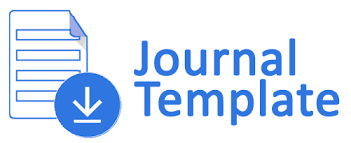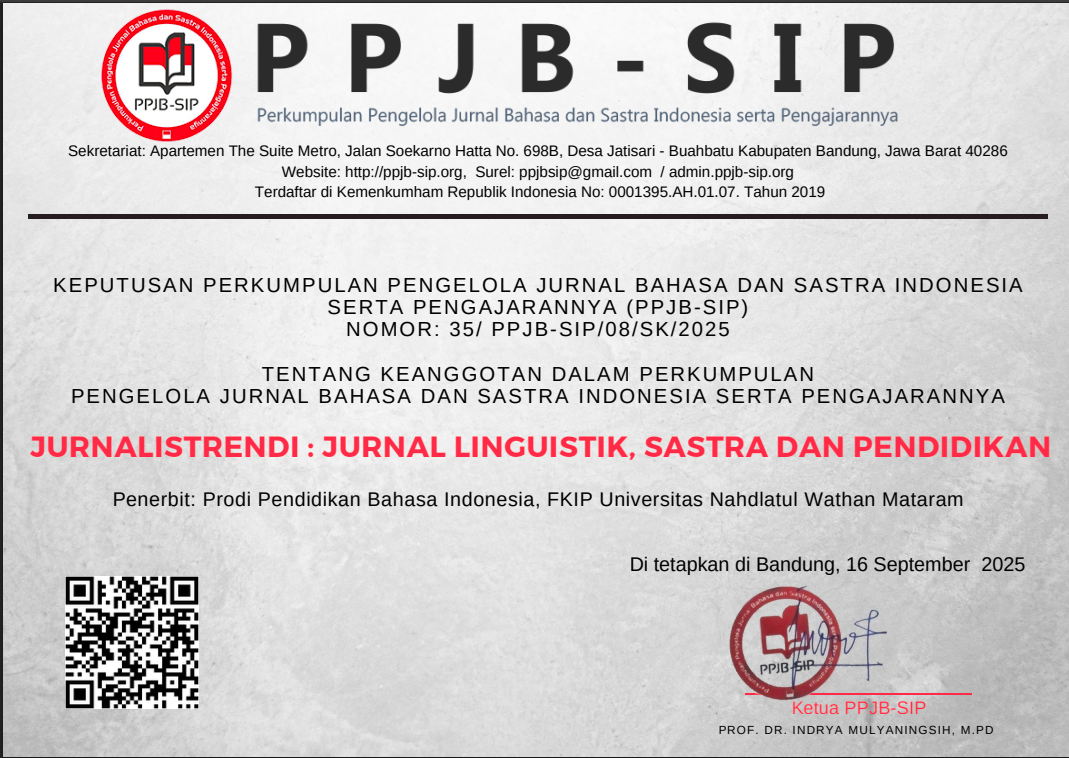Wacana Kritis Tentang Konstruksi Narasi Media dan Persepsi Mahasiswa Pada Pemilu Presiden 2024 di Universitas Madura
Abstract
This study aims to analyse how the construction of media narratives regarding the 2024 Presidential Election influences the perceptions of students at Universitas Madura. Using a critical discourse analysis approach, this research explores media strategies such as framing and priming utilised in conveying political issues. The findings reveal that the media plays a significant role in shaping students' perceptions of the election, influenced by their level of media literacy. Students with higher media literacy tend to be more critical of media narratives and are more capable of rejecting or modifying the information they receive. The implications of this study highlight the importance of developing more comprehensive media literacy programmes at universities, aimed at enhancing students' abilities to critically evaluate information. Furthermore, the integration of media literacy into political education is seen as a strategic step in cultivating a generation that is more informed and actively engaged in the democratic process. Further recommendations include additional research involving a broader student population and the development of educational interventions focused on improving critical thinking skills in the context of politics and media. This study makes a significant contribution to the understanding of the relationship between media, politics, and student perceptions.
Downloads
References
Baxter, P., & Jack, S. (2016). Qualitative case study methodology: Study design and implementation for novice researchers. The Qualitative Report, 13(4), 544-559. https://doi.org/10.46743/2160-3715/2008.1576
Bennett, W. L., & Pfetsch, B. (2018). Mediated politics: Communication in the future of democracy. Cambridge University Press.
Bulger, M., & Davison, P. (2018). The promises, challenges, and futures of media literacy. The MIT Press.
Chong, D., & Druckman, J. N. (2017). Framing theory. In C. Tilly & J. L. Block (Eds.), The Oxford handbook of political behavior (pp. 396-414). Oxford University Press.
Couldry, N. (2017). The mediated construction of reality. Polity Press.
Creswell, J. W., & Poth, C. N. (2018). Qualitative inquiry and research design: Choosing among five approaches (4th ed.). Sage Publications.
Fairclough, N. (2016). Critical discourse analysis: The critical study of language (2nd ed.). Routledge.
Hallin, D. C., & Mancini, P. (2016). Comparing media systems beyond the Western world. Cambridge University Press.
Huckfeldt, R., Johnson, P. E., & Sprague, J. (2018). Political discontent and social networks: The role of media in shaping political opinions. Cambridge University Press.
Livingstone, S. (2019). Children’s and young people’s media use: A review of the literature. Routledge.
Livingstone, S., & Helsper, E. J. (2016). Active participation or just more information? Young people’s take-up of opportunities to act and interact on the internet. Information, Communication & Society, 10(3), 287-314. https://doi.org/10.1080/13691180600735605
Loughborough University. (2020). Election and media: Critical perspectives. Loughborough University Press.
McCombs, M. E., & Shaw, D. L. (2016). The agenda-setting function of mass media. In Communication and democracy (pp. 122-136). Routledge.
Moffitt, B. (2020). Populism and the crisis of democracy. Stanford University Press.
Newman, N., Fletcher, R., Kalogeropoulos, A., & Nielsen, R. K. (2019). Reuters Institute digital news report 2019. Reuters Institute for the Study of Journalism.
Norris, P., & Inglehart, R. (2019). Cultural backlash: Trump, Brexit, and authoritarian populism. Cambridge University Press.
Patton, M. Q. (2016). Qualitative research & evaluation methods: Integrating theory and practice (4th ed.). Sage Publications.
Potter, W. J. (2016). Media literacy (8th ed.). Sage Publications.
Schulz, W., Wirth, W., & Müller, P. (2018). The role of media in shaping public opinion. Routledge.
Tewksbury, D., & Scheufele, D. A. (2019). News framing theory and research. In R. D. Brown & L. L. Johnson (Eds.), The handbook of media and mass communication (pp. 67-83). Wiley-Blackwell.
Tufekci, Z. (2017). Twitter and tear gas: The power and fragility of networked protest. Yale University Press.
van Dijk, T. A. (2018). Discourse and power (2nd ed.). Palgrave Macmillan.
Vosoughi, S., Roy, D., & Aral, S. (2018). The spread of true and false news online. Science, 359(6380), 1146-1151. https://doi.org/10.1126/science.aap9559
Wardle, C., & Derakhshan, H. (2017). Information disorder: Toward an interdisciplinary framework for research and policymaking. Council of Europe.
Wodak, R., & Meyer, M. (2016). Methods of critical discourse studies (3rd ed.). Sage Publications.
Webster, J. G. (2018). The marketplace of attention: How audiences take shape in a digital age. MIT Press.
Copyright (c) 2024 Jurnalistrendi : Jurnal Linguistik, Sastra dan Pendidikan

This work is licensed under a Creative Commons Attribution-NonCommercial 4.0 International License.

.jpg)





